Tea has been an essential part of cultures all over the world for hundreds of years. Asian black teas are energizing, while Japanese green teas are soothing. Because of its many uses and health benefits, tea has become an essential part of our daily lives. But what about people who want a little sweetness but don’t want the extra sugar? Monk fruit is a natural sugar that is about to change how you drink tea.
Explore the world of monk fruit natural sweeteners in this blog post. Learn about its interesting background, unique qualities, and why it is the best natural sweetener for your tea.
Unveiling the Secrets of the Monk Fruit: A Journey Through History
Luo han guo, or monk fruit, has a history that goes back hundreds of years. The fruit comes from Southeast Asia, especially southern China and northern Thailand, and has a long history. In the 13th century, Buddhist monks were some of the first to grow it because they thought it might be good for their health.
Monk fruit is sweet not because of its sugars but because of special chemicals called mogrosides. Because the fruit has these natural vitamins, it is very sweet, sometimes 100 to 250 times sweeter than sugar.
Most of the time, we don’t eat the fruit itself. Instead, we use the extract, which is made by taking out the seeds and skin. You can then turn this pure extract into a powder or liquid that you can use to sweeten your favorite drinks.
Sweetening Your Tea with Benefits: Unveiling the Advantages of Monk Fruit
So, why should you use monk fruit natural sweetener over other sweeteners for your tea? Here’s a closer look at the benefits that make it an excellent choice:
1. Zero Calories and Good for the Keto Diet:
Sugar has a lot of calories, but monk fruit has none. This makes it an excellent choice for people who are monitoring their weight or on a ketogenic diet.
2. Blood Sugar Friendly:
Monk fruit extract is safe and healthy for people with diabetes or prediabetes because it does not raise blood sugar.
3. Fresh Sweetness With No Aftertaste:
Added sweeteners often leave a bad taste in your mouth. Monk fruit, on the other hand, has a natural sweetness that is clean and doesn’t leave behind any bitterness.
4. Heat Stable:
Monk fruit extract is excellent for hot teas because it doesn’t change as some natural sugars do when it gets hot. You can drink your sweetened tea without thinking the sweetener will lose strength.
5. Antioxidant Powerhouse:
Studies show that mogrosides, the sweet chemicals in monk fruit, may be suitable for your health because they are antioxidants.
6. Versatile Sweetener:
Because monk fruit is so sweet, you only need a small amount compared to sugar. Plus, it goes well with many kinds of tea, from mild green to strong black teas.
Beyond Sweetness: Exploring Monk Fruit’s Synergy with Tea Flavors
The great thing about monk fruit supplier is that it can bring out the natural tastes in your tea. Take a closer look at how it goes with different kinds of tea:
- Green Tea: The clean sweetness of monk fruit goes well with the light grassy notes of green tea.
- Black Tea: A little monk fruit can make black tea less bitter, letting the stronger tastes come through.
- Herbal Tea: Monk fruit gives herbal drinks a little sweetness without taking away from the flavor of the plants used in them.
Beyond the Cup: Exploring the Applications of Monk Fruit
While monk fruit natural sweetener shines in tea, its applications go far beyond the teapot. Here are some more ways to include this natural sweetener in your life:
- Baking and cooking: You can use monk fruit extract instead of sugar when baking and cooking, so you can enjoy sweets and treats without feeling bad.
- Coffee and Smoothies: Monk fruit is a healthy way to add sweetness to coffee or drinks without changing the way they taste or what nutrients they contain.
- Marinades and salad dressings: Adding a little monk fruit can give marinades and salad dressings a subtle sweetness that makes for a great mix of flavors.
How Monk Fruit Can Be Used for Daily Consumption
Monk fruit is known for being naturally sweet without the calories that come from sugar. It is a healthy food that you can eat every day. Monk fruit is helpful in many drinks and made goods. It comes in different forms, like liquid extracts and powdered sweeteners. You can use it instead of sugar in foods to make them taste sweet without raising blood sugar. This makes it good for people with diabetes or who are trying to lose weight. Monk fruit also mixes well with other natural sweeteners, such as erythritol, which makes it easier to use in baking and cooking. Eating monk fruit every day will not only satisfy your sweet tooth but will also help you live a healthy life by lowering the amount of sugar and calories you eat.
The Bottom Line
Monk fruit makes a strong case for being the best natural way to sweeten your tea. It’s good for you in many ways, from having no calories and being easy on the blood sugar to tasting great and being versatile. Monk fruit natural sweetener has many uses and can improve the taste of tea. It is about to take your tea experience to a whole new level. Enjoy the sweetness of monk fruit and start a trip of guilt-free tea enjoyment!



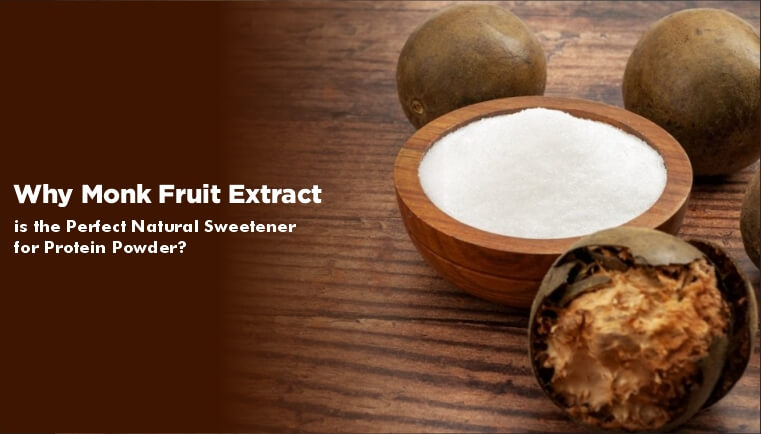

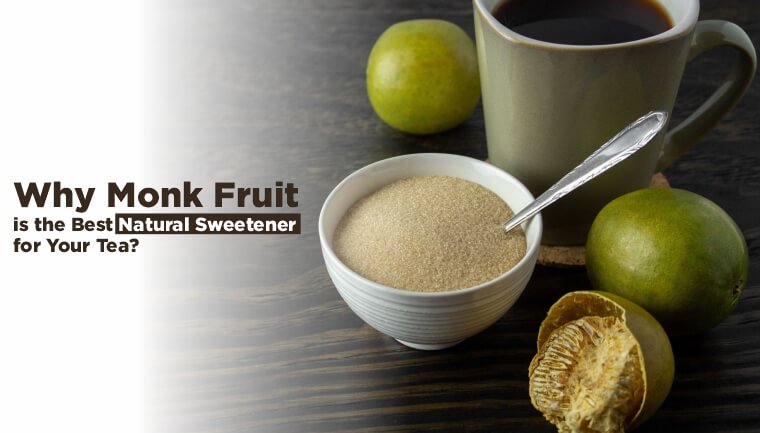

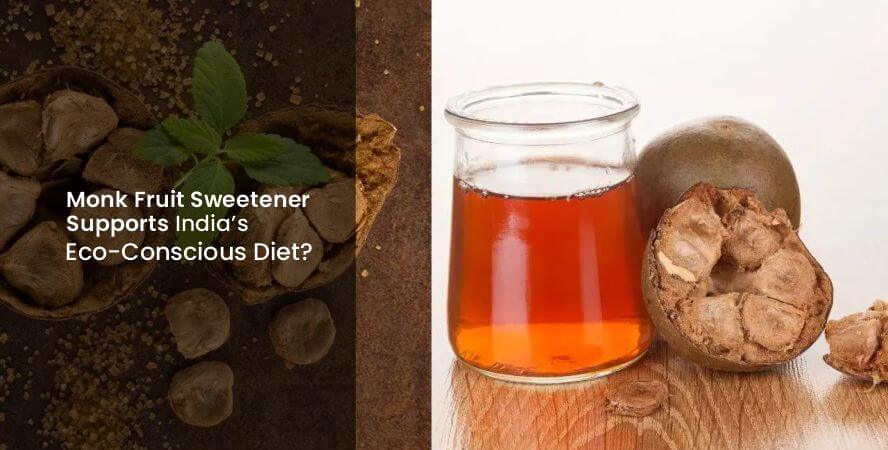
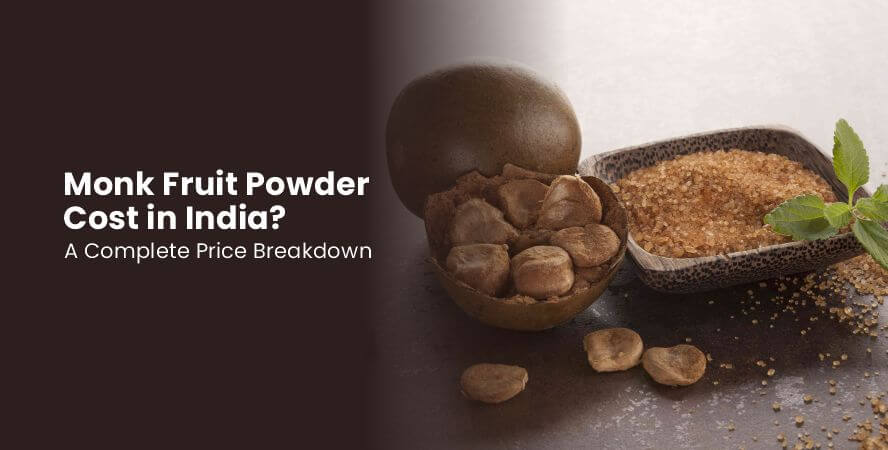
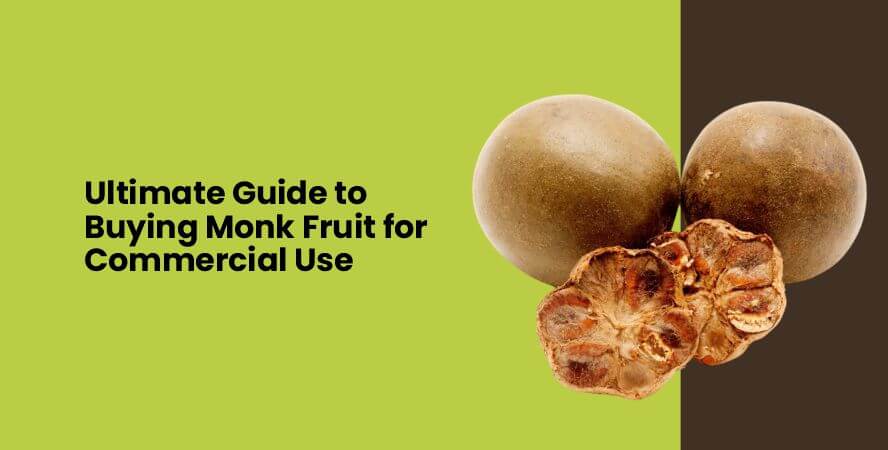
Leave a Reply